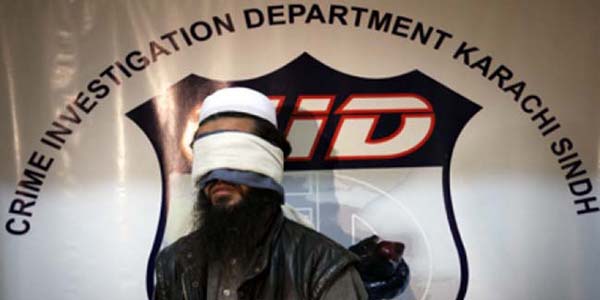Seemingly, the bone-crunching way of peace process has reached to the front door of house of Mullah Abdul Ghani Baradar, the ex-second in command of Taliban militants. He is deemed moderate who can be a great help for striking peace deal with Afghan government.
Since the start of peace process with Taliban militants, Afghan officials have been asking Islamabad to release Taliban prisoners as encouragement for the acceleration of peace process similar to what they have done inside the country. Hundreds of Taliban prisoners, including suicide bombers who were captured before detonating their explosives were released by direct order of President. But Pakistani officials were equivocating.
They used to hesitate whether to set Taliban prisoners free or not. But during the current year, they decided to release Taliban prisoners, which was sometime appreciated but at other times sparked criticisms of Kabul on account that it was not put in the picture.
Although the policy has not proved useful but is followed with extraordinary persistence. Last month President Hamid Karzai paid a visit to Islamabad, perhaps his last visit as Afghan President. One of the issues he discussed with Islamabad officials was the active role of Pakistan in an Afghan-led peace process, including the release of Taliban prisoners particularly Mullah Abdul Ghani Baradar. Ultimately, Islamabad agreed to set him free. Prime Minister Nawaz Sharif during his visit from Turkey told that the decision was made as result of commitment with President Karzai.
Meanwhile, Pakistani official have clearly voiced out that he will not be handed over to Afghan government. Last week, Sartaj Aziz, main advisor to Prime Minister Nawaz Sharif said that handing him over to Kabul would affect the reconciliation process with Taliban. “It is at his (Baradars) discretion, whether he chooses to live here or anywhere of his own choice,” Aziz said.
Meanwhile, he did not say if Baradar had expressed where he would want to go. “We have to follow the Taliban’s desires and we would carry out his release in accordance with what they want”. It seems that he may be extradited to Saudi Arabia or Turkey where Kabul is trying Taliban should open their political office after its closure in Duha due to Kabul’s sharp criticisms.
But the main question, would his release give the peace process a new momentum? There are two somehow weirdly obsessing issues. First of all, why Afghan officials have put finger on his release while the release of lower commanders from AfPak’s prisons did not prove any help to peace process? Secondly, why Pakistan, in spite of continuous demands of Kabul, avoided releasing him, considering that defiance will not only deteriorate bilateral relation and fuel suspicion about its role in Afghanistan?
It is really not clear why Afghan officials think that Mr. Baradar is far logical, reasonable and interested to commence negotiation with them, the thing which has been constantly rejected by group’s leadership. From the very early start of the initiative, Taliban militants have constantly rejected to set on the negotiating table with Afghan government’s representatives. Although President Karzai himself calls them as “dissent brothers”, they have not given up calling the current government as “foreign puppet”. Hundreds of Taliban prisoners have been released by direct order of Mr. President but Taliban avoided giving green signal to negotiate with his government. Similar action is held by Pakistan. Several important commanders have been released on what Pakistan calls as due demand of Kabul, but none paid back for its good intention. There are reports that most of them have returned to battlefield and wage Jihad against Afghan government.
They still try to challenge the legitimacy of his rule saying that he has come to power by the force of US fighter jets. So, negotiating with government’s representative, they think, itself a blow to long-held mentality of Taliban fighters. Thus, they instead say that their main opposition is the United States and they are just negotiating with it about the destiny of Afghanistan.
What Afghan officials assume is this that Mullah Baradar can use his influence and change this inflexible stance against government. They think consider him crucial in getting Taliban leadership to be realistic because foreign countries will leave Afghanistan till next year and, thus, they should talk with government of Afghanistan. I really do not know from where this hope originates but it is something which is widely believed. I do not think so that Afghan officials were ever in contact with him. Because if ever they had such contact, they could communicate with Washington to tell CIA agents to avoid arresting him in cooperation with ISI intelligence. But it is possible the denial of Islamabad for his release has changed him to favorable icon for peace, which depends on the answer second question put in the above paragraph: “Why Pakistan ignored the continuous call for his release?”
Kabul has always seen Islamabad policies with suspicion. It believes that politicians and officials of security establishments still maintain relation with Taliban commanders. It is also blamed that Taliban leaders live in Pakistan and enjoy the shelter of its secret service intelligence. In line with such policy, what persistence on keeping Mr. Baradar in prison meant? The answer is obvious. Kabul viewed such move as sabotaging the peace process. As result, Kabul kept emphasizing on his release without being certain that he would be catalyst to stalled peace process.

